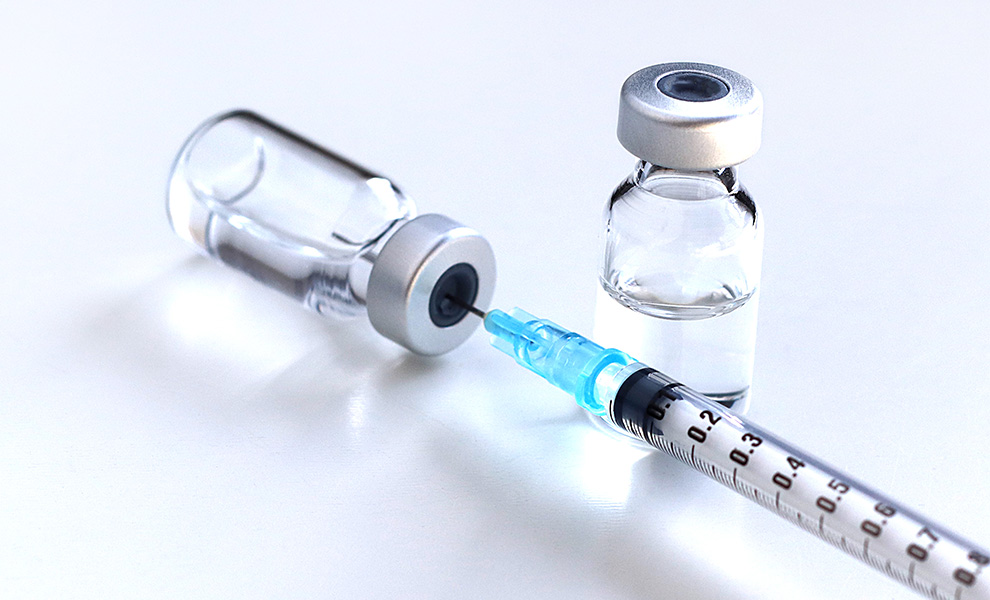
This part of our immune system can only be developed by exposure to specific pathogens but it has the benefit of remembering these pathogens and thus being on alert to deal with them should we suffer a repeat attack. Under normal circumstances our adaptive or acquired immunity occurs as a natural result of actual infection by a virus or bacterium. The pathogen or a fragment of it (antigen) is displayed on the surface of macrophages, recognized by our T helper cells (Th-1 and Th-2 cells) which then trigger a prompt reaction. This reaction involves other Tcells and B cells that kill cells that are already, infected by antigens, and eventually T memory cells. Once the pathogens have been killed off another group of T cells suppresses the immune system. It is the Th-2 cells that activate B cells to produce the killer antibodies.
Vaccination (immunization) is a means of producing active antibodies within our adaptive immune system without having to have suffered an attack of the specific disease causing pathogen resulting in disease. Some forms of vaccination do produce a disease response in our body but this will normally be mild and of short duration. Certainly this is preferable to experiencing a full blown, possibly life threatening infection. Several means of inducing our body to produce disease specific antibodies are used. In most cases of vaccination against viral diseases modified or weakened live viruses are used. The body reacts by producing the appropriate antibodies which will then resist infection by the specific disease or be remembered in case of an infection in the future.
There is some controversy over the use of vaccination due to some vaccines having resulted in patients suffering serious adverse side effects and in some instances even fatalities. Overall, however, vaccination appears to be the most effective protection against viral diseases. Unfortunately viruses are particularly good at mutating and we are now experiencing fairly rapid mutations in viruses that are rendering the original vaccinations redundant.
Vaccination against bacterial infections are based on the same principle of activating antibodies to the specific pathogenic antigens but these vaccinations can be done using small antigenic components of the bacterium or toxin components that are quite safe.